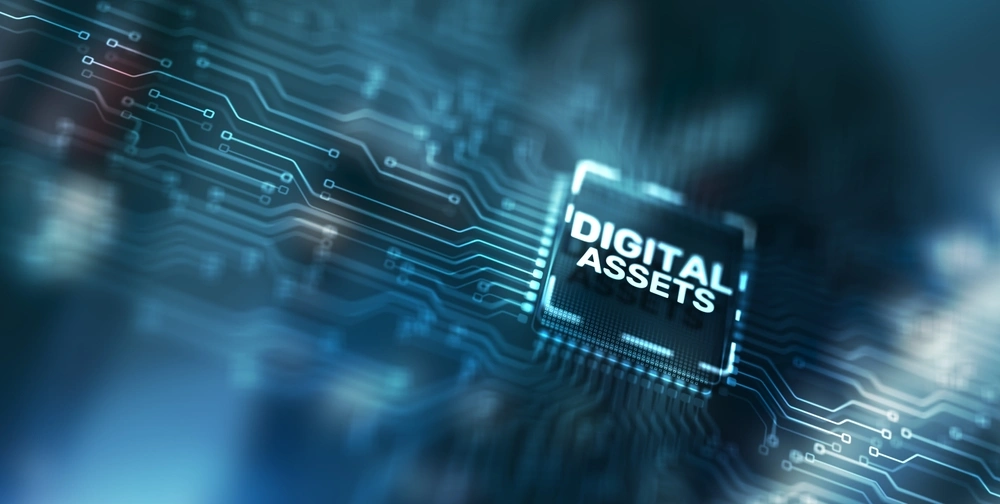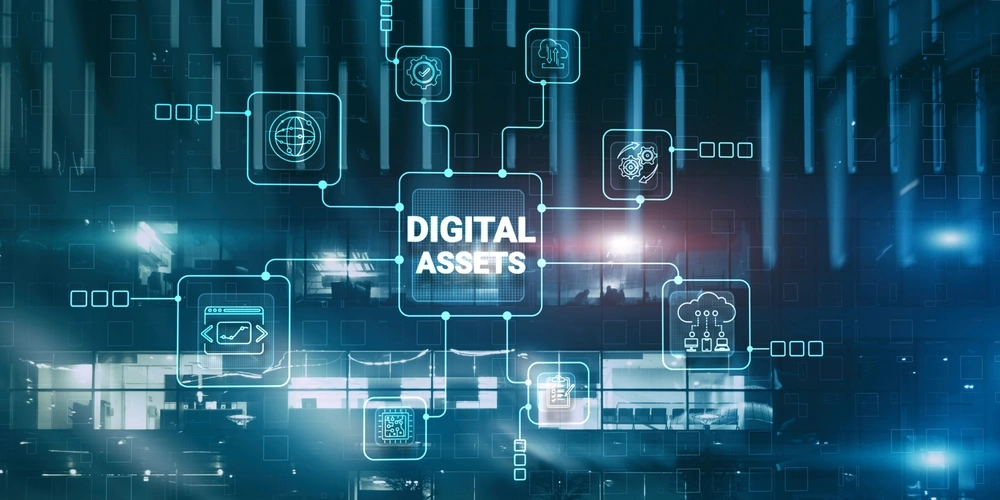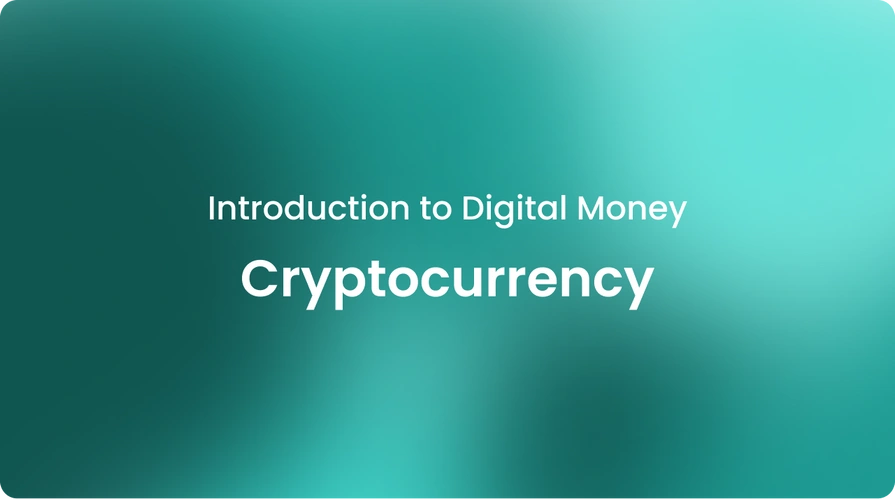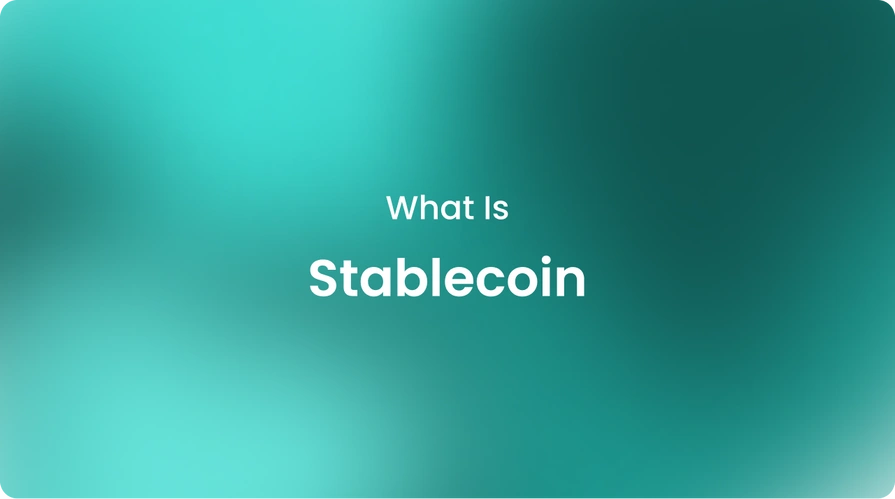|knowledgehub, technology
What Are Digital Assets?
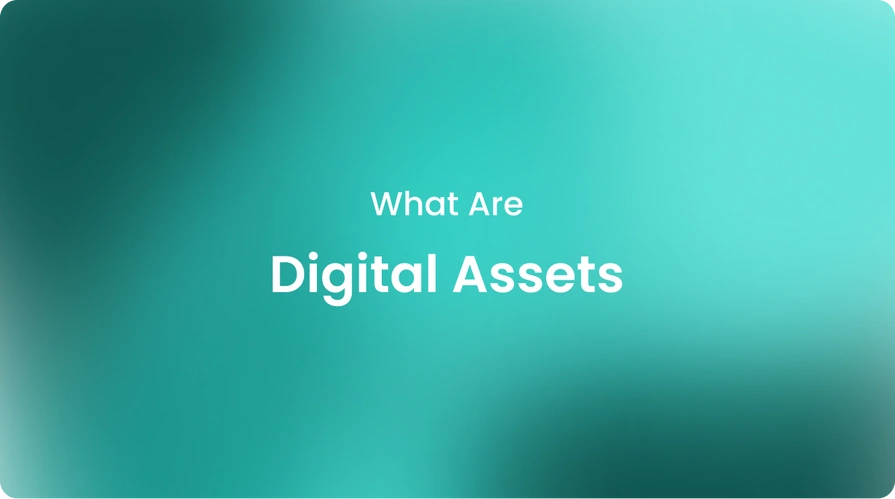
Digital assets have become increasingly prevalent in recent years with the adaptation of cryptocurrencies and stablecoins, yet the full scope of this term remains mysterious to many.
This article aims to demystify digital assets by exploring what they are, why they matter, common examples, and their growing importance in technology and finance. By the end, you'll have a solid understanding of this diverse class of networked property.
Digital assets refer to any assets that are native to, or best utilized by, digital networks and the internet. This includes assets physically stored on digital networks as well as assets whose defining characteristics are digital in nature.
While digital assets like cryptocurrencies have captured mainstream attention, this category also includes less tangible assets like internet domains, metadata, login credentials, and various digital files.
Why are digital assets important?
Digital assets represent the ongoing shift of both commerce and culture to digital networks. As society becomes ever more wired, digital property rights carry increasing importance relative to physical assets alone.
Already, digital assets compose a significant portion of global wealth. Some estimates suggest that digital assets account for more than 40% of the global GDP.
Digital assets are also important due to their relative ease of transfer compared to physical assets. On public networks like the internet and blockchains, digital items can change hands instantly for nominal fees anywhere in the world.
This efficiency of transfer underlies the explosive popularity of digital payment systems and digital marketplaces. It has also led some to propose that digital assets may one day supplant traditional currencies and stores of wealth.
What is considered a digital asset?
While definitions vary, the term digital asset broadly includes:
Cryptocurrencies and crypto tokens
Cryptocurrencies and crypto tokens are digital assets that utilize cryptography for secure transactions and to control the creation of new units. Digital currencies like Bitcoin and Ethereum, as well as associated programming tokens on protocol blockchains, are examples of digital assets.
Non-fungible tokens (NFTs)
NFTs are unique digital items that represent ownership of assets like digital art, collectibles, virtual real estate, and game items. You can check out “RWA tokenization," “gaming tokens," and “real estate tokenization” for further information.
Digital files
Copyrighted or licensed media like images, videos, audio, and documents, along with source code, databases, and computer programs.
User data
Personal profiles, upload histories, purchase behaviors, locational data, biometrics, health records, and other private user information captured or housed digitally.
Domain names and websites
Domain names and websites are important components of the online world. Internet domain names, along with the full content and codebases of functional websites.
In-game assets
Virtual weapons, clothing, accessories, avatars, land parcels, and other items that confer powers or status within game environments.
Is a digital asset a token?
Although digital assets and tokens are sometimes used interchangeably, they are not synonymous. A token generally refers to a unit of value or access on a blockchain, cryptocurrency, or decentralized network.
Tokens can represent assets like currencies, collectibles, coupons, and securities, or they can have utility by permitting participation in a protocol. However, tokens have no inherent value outside of their designated use cases.
Digital assets, on the other hand, are distinct revenue-generating properties that may or may not utilize tokens as a surface representation. Blockchain tokens are a subset of digital assets, while digital assets can exist independently of tokens or blockchains.
Is blockchain a digital asset?
Blockchain technology itself does not strictly constitute a digital asset, though individual blockchain networks and their associated tokens could be considered as such. At its core, blockchain technology serves as an open financial ledger or database, not an owned asset.
However, popular blockchain platforms and protocols generate value through their user bases, governance tokens, and potential to onboard new technologies as programmable blockchains.
Foundational networks like Bitcoin and Ethereum serve as large-scale digital assets and the backbones for entire blockchain-based asset classes.
Are all digital assets cryptocurrencies?
No, while cryptocurrencies represent a major category of digital assets, not all networked digital properties are currencies or intended as mediums of exchange.
Decentralized digital money distinguishes cryptocurrencies, which possess traits such as fungibility, finite supply, and acceptance as payment.
Beyond currencies, digital assets encompass a much wider range of networked goods, from digital artwork and domain names to compute power and regulated securities. Some digital assets, like non-fungible tokens or cloud storage space, have little currency-like qualities at all.
The term "digital asset" aims to group all technologically native properties together, with cryptocurrencies forming an important subset of the larger field.
Are digital assets the same as cryptocurrency?
While related, digital assets represent a broader sector than cryptocurrencies alone. Cryptocurrency refers specifically to decentralized digital currencies and cash-like tokens on public blockchains.
Digital assets encompass stores of value, rights, or access that thrive in digital or networked environments. This includes cryptocurrencies, as well as media files, domain names, crypto tokens without currency functions, user data, and various online accounts or virtual goods.
Cryptocurrencies, along with many other networked property innovations, are classified as a subset of the wider digital asset landscape, as both terms have grown in usage to describe the proliferation of digital property types.
How many crypto assets are there?
The number of cryptocurrencies and associated tokens in existence has exploded in recent years, though the vast majority remain obscure with little crypto trading volume or developer support. By some counts, there are over 20,000 crypto assetslisted across all crypto exchanges.
However, the bulk of overall crypto market value remains concentrated within the top 100 most actively used currencies. Major players like Bitcoin and Ethereum still hold over 65% of the total crypto market cap.
Beyond this elite group of blue-chip currencies, the vast crypto long tail is highly speculative, with uncertain long-term prospects for many projects. As standards emerge around usability, security, and real-world utility, experts anticipate future consolidation.
What are the benefits of crypto assets?
Crypto assets provide a compelling combination of financial and technological benefits that have driven both speculation and legitimate innovation.
Some commonly cited advantages of cryptocurrencies include:
Borderless transfer
Global crypto payments enable more inclusive access to financial services by eliminating dependence on national currencies or centralized financial institutions. Remittances and cross-border payments using the EURK stablecoin are far faster and lower-cost than alternatives.
Programmability
Many cryptocurrencies support transaction-complete smart contracts, allowing for novel applications of blockchain-based agreements, decentralized finance protocols, NFT marketplaces, and more. Platforms like Ethereum are programmable blockchains powering burgeoning new crypto economies.
Immutability
Once recorded, crypto transaction data is extremely difficult to censor or alter due to the distributed blockchain public ledger architecture. This provides a high degree of transparency in the transmission of value.
Limited supply
Most major cryptocurrencies, like Bitcoin, have predefined maximum supply schedules, which may appeal to those seeking an alternative to inflationary national currencies over the long run.
Decentralization
No single entity controls cryptocurrency networks, avoiding the many issues of political interference, downtime risks, and international conflicts that plague centralized payment systems.
What are examples of digital assets in crypto?
A wide variety of crypto-native digital assets have emerged that showcase both practical and novel applications of public distributed ledgers.
A few representative digital asset examples include:
Cryptocurrencies
Pioneer currencies like Bitcoin and the Ethereum network token Ether, which powers the Ethereum Virtual Machine and dApps.
Stablecoins
Fiat-pegged digital currencies like EURK for stability and usability. EURK is a euro stablecoin backed 1:1 by the euro and issued on multiple blockchains. Cryptobunq is a one-stop-shop crypto service provider that issues and audits EURK securely.
Non-fungible tokens (NFTs)
People most prominently use unique crypto tokens to represent ownership of virtual or digital goods such as art collections, event tickets, virtual land, and more.
Gaming assets
In-game items, land parcels, and avatars that players can buy, sell, and trade within virtual environments.
Digital collectibles
Unique blockchain assets distribute capsule machines, profile pictures, virtual trading cards, and limited edition creator tokens.
Digital securities
Crypto is reinventing equities, debt, and fund tracking via tokenized security representations like real estate investment platforms. You can check out “security tokens” for further details.
Why do people buy digital assets?
There are several key motivations driving digital asset adoption:
As an investment
Cryptocurrencies and certain tokens can appreciate in value over time, and crypto traders can later sell them for a profit, similar to traditional assets. This new frontier of investing attracts speculators and opportunists.
Hedging against inflation
Due to their capped supply designs, some see certain cryptocurrencies as a hedge against inflation and the devaluation of national fiat currencies. You can benefit from Cryptobunq crypto solutions such as custody and wallet, tokenization, checkout and invoicing, and more with expert guidance.
Early adoption
Being an early participant in transformative technologies like decentralized finance or NFT usage grants exposure to huge emerging markets. Success in these fields has created countless millionaires.
Belief in the vision
Many support blockchain-based digital asset projects due to a belief in their mission to revolutionize aspects of our economic and financial systems through decentralization, transparency, and programmable assets.
Appreciating unique assets
Collectors buy distinctive NFTs due to their scarcity and cultural significance as digital memorabilia in a growing digital native economy.
Improving future financial inclusion
Some see digital assets as a pathway to greater financial inclusion by introducing lower barriers to accessing financial services worldwide. Access to borderless digital asset platforms makes this possible.
What is the future of digital assets?
Most experts agree that crypto and digital assets are still in their relative infancy and poised for tremendous growth. Experts project that as familiarity and real-world use cases increase, crypto and digital assets will follow an S-shaped adoption pattern similar to other new technologies.
Forecasts by professional services firms envision over a quarter of US adults owning some form of cryptocurrency by 2030. Other projections estimate the total crypto market cap may eclipse that of gold within the next decade based on current adoption trends.
Many experts argue digital assets will continue disrupting traditional finance and potentially achieve mainstream usage at some point, with crypto infrastructure companies like Cryptobunq positioned to power this growth through diverse services.
As technology improves and regulatory clarity emerges, stakeholders are increasingly recognizing digital assets as integral to any future digital finance and economy. It is still to be determined what the full potential impact of digital assets will be.
How do I invest in digital assets?
Those interested in gaining exposure to digital assets have several options available:
- Purchase cryptocurrencies directly from exchanges. Crypto service providers offer wallets to secure the custody of assets, such as Cryptobunq.
- Buy shares of companies actively developing blockchain and crypto infrastructure, product teams, crypto mining operations, or cryptocurrency exchanges.
- Invest in blockchain investment funds to gain diversified exposure managed by experts. Some focus on blue-chip cryptocurrencies, while others target high-potential startups and tokens.
- Stablecoins like EURK maintain price pegs through backing by real reserves and conveniently integrate across many blockchain platforms.
- Collect or purchase valuable non-fungible tokens (NFTs) representing digital art, collectibles, or future utility- or yield-bearing assets.
- Contribute to blockchain project fundraising rounds by purchasing tokens supporting protocols, applications, and other startups.
When investing in digital assets, it is recommended to conduct proper research, assess risks, and diversify. CaaS, NaaS, BaaS, and WaaS providers like Cryptobunq help mitigate risks through regulated offerings, insurance, and advanced security with expert solutions and services.
The bottom line
Digital assets are becoming an important emerging asset class that promises to transform our financial system. By dematerializing assets and enabling new ownership and exchange paradigms through blockchain technologies, digital assets bring unprecedented accessibility and use cases.
Although still nascent, many believe digital assets will achieve mainstream adoption within the next decade as infrastructure matures. With traditional finance increasingly integrating cryptocurrencies and tokens, the future potential of digital assets is huge.
Understanding and participating early will position individuals for significant opportunities. Continued education will be key to safely capitalizing on this financial revolution as it unfolds. You may need a secure and expert crypto service provider along the way. Cryptobunq is here for you.
You can easily benefit from our crypto services, from batch payments to exchange APIs, and take your business and individual projects to the next level with our blockchain-powered solutions. Contact us and start to explore CBQ advantages and case studies today!
